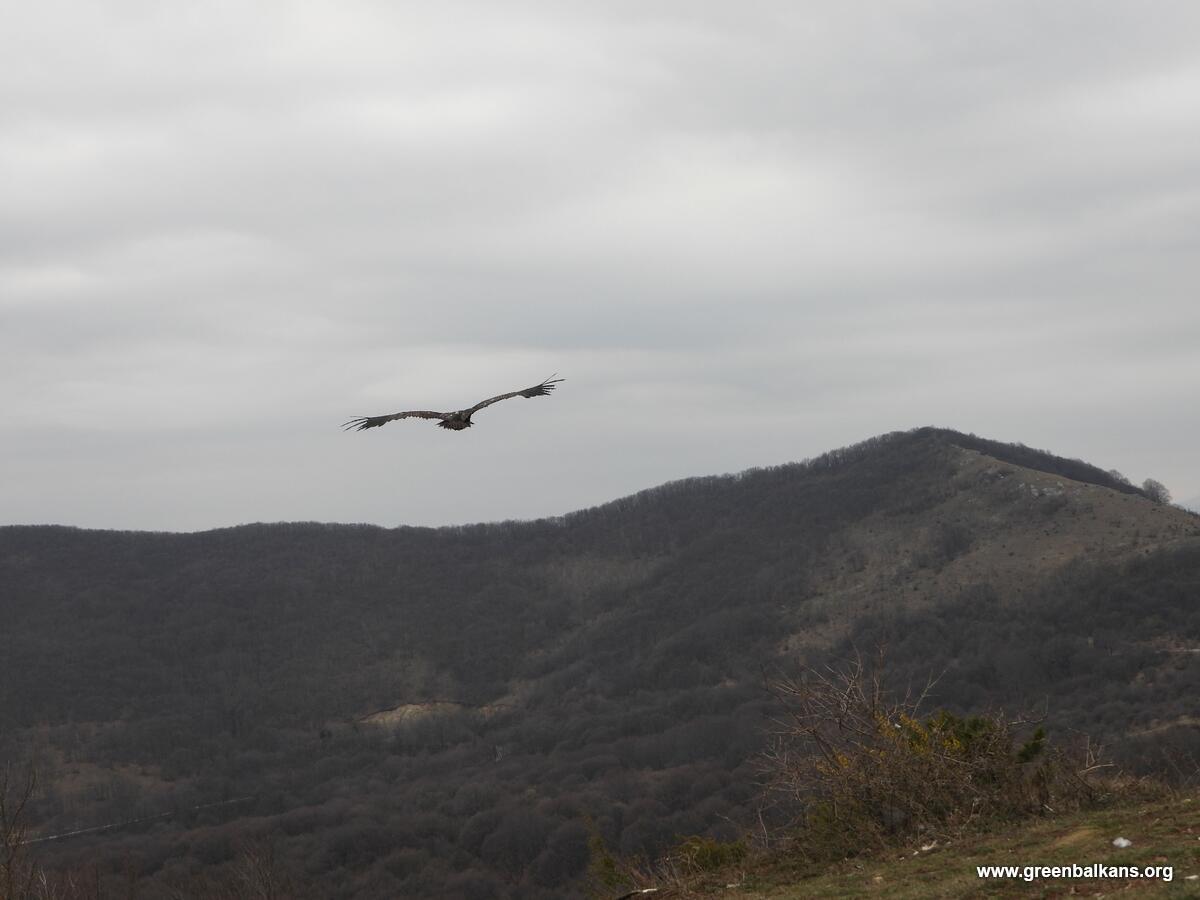Black vulture released in southern France as part of thereintroduction project has already crossed half of Europe
Abricot is a male black vulture reintroduced in the Baronnies, southern France, as part of the reintroduction project there (managed by Vautours en Baronnies). It is a Spanish wild bird that entered a rehabilitation center in Andalusia, and was transported in late 2013 to France by the VCF. After 1 year in an acclimatisation aviary, Apricot and 3 other black vultures were released on the 7th January 2015, equipped with a tag.
Abricot demonstrated from those first few days his flying abilities- he was the first of the four to do long flights across the Baronnies, and in April last year he embarked on a long flight toward the Italian peninsula – reaching the island of Capri. It then returned again to the Baronnies, in a return trip of about 2600km.
After only one night “at home”, he then departed towards the Alps, and crossed Switzerland, southern Germany, and Liechtenstein, towards Austria, all the way to the Hungarian-Slovak border. The end of the Alps and the great Danube plain made Abricot do a U-turn, and he swiftly returned back… to the Baronnies, in another 2500km round trip (see map)!
After a few days in Baronnies, Abricot then decided to leave to the west (in May 2015), stopping for a couple of weeks in the French massif central (and visiting the Grands Causses, another of the black vulture reintroduction sites in France), and crossing the whole of Spain from Barcelona to Madrid all the way to western Spain. He has flown up and down the Spanish-Portuguese border, passed by the Douro canyon (where the VCF and other partners are implementing the LIFE RUPIS project), and then in the beginning of this year settled in Andalucía, in an important black vulture colony (Sierra de San Pedro), where he may have attempted to breed. He has since been making foraging trips in the region, and was recently seen and photographed on the Portuguese side of the border, in a supplementary feeding point managed by Liga para a Proteção da Natureza (see photos).
Photos: LPN



